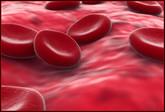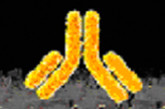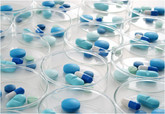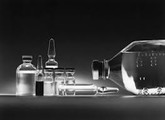Biosimilars/Research
Pure red cell aplasia in a CKD patient after treatment with epoetin zeta
Authors from the Versilia and Manzoni Hospitals in Italy report the case of a patient who developed pure red cell aplasia (PRCA) following subcutaneous administration of epoetin zeta, which is one of the two biosimilars of epoetin alfa licensed in Europe [1].
The economic impact of biosimilars in the US
Biologicals are large molecule compounds used to treat rare or complex diseases. Between 2013 and 2014, spending on specialty drugs, including biologicals, increased 32.4%, while spending on small-molecule drugs increased by just 6.8%. By 2016, eight of the 10 top-selling drugs are expected to be biologicals.
Doctors want more details in biosimilars labelling
In the European Union (EU), labels (Summaries of Product Characteristics, SmPCs) for biosimilars and their reference products are, in many instances, almost identical despite different data requirements for the authorization of biosimilars.
Real-world safety data for epoetin alfa biosimilar
A 2-year post-marketing study of the epoetin alfa biosimilar Binocrit has found the biosimilar to be safe in daily clinical practice, according to the authors [1].
Biosimilar rituximab in biological naïve rheumatoid arthritis patients
Cost remains a major constraint in the use of originator biologicals in rheumatology in developing countries, paving the way for ever increasing usage of biosimilars. However, apart from the cost, their efficacy and safety are of tremendous interest to clinicians in both developing and developed worlds.
Insulin biosimilar meets primary endpoint in phase III studies
US pharma giant Merck announced on 13 June 2016 positive results from two phase III studies evaluating its insulin glargine biosimilar (MK-1293).
Prescribing similar biotherapeutic products in Latin America
Prescribing practices vary across different countries in Latin America and reveal gaps in understanding and in the use of distinguishable names for biologicals [1].
European regulatory pathways for biosimilars
The European regulatory pathways for biosimilars were discussed in a review of biosimilars in rheumatology by author José M Serra López-Matencio and colleagues from the Universidad Autónoma, Madrid, Spain*.
Extrapolation of indications for mAbs
Monoclonal antibody (mAb) biosimilars have recently entered the market, raising questions in the healthcare community. One of the questions discussed by Professor Pierre Michetti, a gastroenterologist at the Centre Hospitalier Universitaire Vaudois, Lausanne, Switzerland, was that of extrapolation of indications for mAbs [1].
Biologicals: characteristics that make them unique and special
The unique characteristics of biologicals were discussed in a review of biosimilars in rheumatology by author José M Serra López-Matencio and colleagues from the Universidad Autónoma, Madrid, Spain*.
Switching between different ESAs
Switching between reference biologicals and biosimilars can be a contentious issue. A study from Italy, however, has found that this phenomenon is not limited to reference products and their biosimilars, but also often occurs between originator biologicals and other originator biologicals within the same category [1].
Candidate infliximab biosimilar SB2 equivalent to Remicade
Results from a phase III clinical trial for a candidate biosimilar version of infliximab in patients suffering from rheumatoid arthritis has shown SB2 to be equivalent to Remicade [1].
Biosimilar etanercept safe and effective
In a study funded by Samsung Bioepis (a Biogen and Samsung joint venture), their candidate etanercept biosimilar (SB4) has been found to be safe and well tolerated and to be equivalent in terms of efficacy compared to Enbrel (etanercept) in patients with rheumatoid arthritis (RA) [1].
Phase III results of adalimumab biosimilar demonstrate equivalence
South Korean electronics giant Samsung and biotechnology company Biogen Idec’s joint venture Samsung Bioepis announced on 6 July 2015 phase III data demonstrating the ‘clinical equivalence’ of their adalimumab biosimilar (SB5) compared to the originator biological, Humira.
Positive phase III results for candidate etanercept and infliximab biosimilars
Results of pivotal phase III clinical studies of candidate etanercept biosimilar SB4 and candidate infliximab biosimilar SB2 met their primary endpoints, demonstrating equivalence to the originator biological in patients with moderate to severe rheumatoid arthritis (RA) despite methotrexate therapy [1, 2].
Phase I results for candidate adalimumab, etanercept and infliximab biosimilars
Results of phase I clinical studies of candidate adalimumab biosimilar SB5, etanercept biosimilar SB4 and infliximab biosimilar SB2, demonstrated equivalence safety profiles to their originator biologicals in healthy subjects [1-3].
Monoclonal antibodies and the challenge of substitution
Healthcare payers are eagerly awaiting the arrival of biosimilar competition in the innovative monoclonal antibody sector in order to drive down drug prices and increase patients’ access to these medicines. As the first to introduce scientific and regulatory requirements for the approval of biosimilars in 2004, the European Union (EU) has emerged as a testing ground for biosimilars. In view of the lack of stance of EU governments and national institutions on substitution for biosimilars, hospitals and healthcare structures logically took up this major issue.
Biosimilars: the clinical perspective
How biosimilars can be viewed from a clinical perspective was discussed in a review of biosimilars in rheumatology by author José M Serra López-Matencio and colleagues from the Universidad Autónoma, Madrid, Spain*.
Biosimilars: management of clinical issues
How to manage clinical issues encountered with biosimilars was a topic discussed in a review of biosimilars in rheumatology by author José M Serra López-Matencio and colleagues from the Universidad Autónoma, Madrid, Spain*.
Biosimilars: a new challenge in the current pharmacology
In a review of biosimilars in rheumatology author José M Serra López-Matencio and colleagues from the Universidad Autónoma, Madrid, Spain discuss issues surrounding biosimilars*.





















